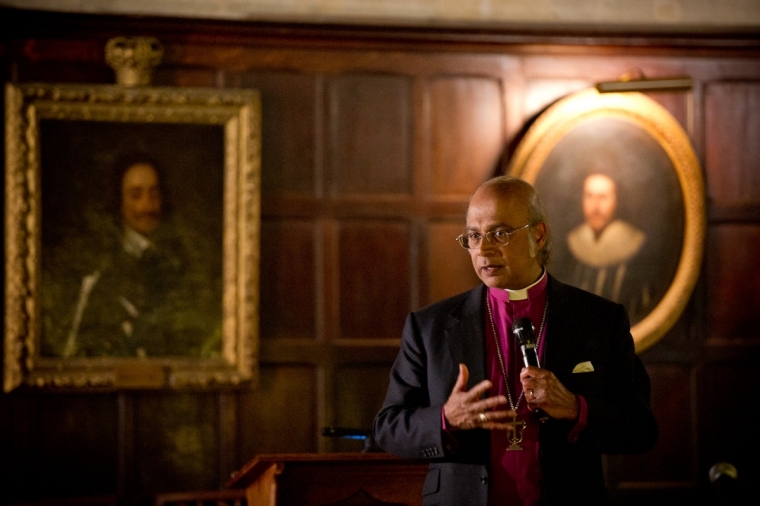Only Christian faith will save Europe, Anglican bishop says after Paris attacks

NEW YORK (Christian Examiner) – A retired Anglican bishop who now works on behalf of persecuted Christians worldwide has a message for those who believe the answer to preventing more Islamic terrorism is promoting secular values:
Only Christianity can save Europe from the radical Islamists threatening it.
Bishop Michael Nazir-Ali, who is originally from Pakistan, writes at The Catholic Herald that there are points of similarity between the secular states of Europe today and the fractured Roman Empire when it was sacked by barbarians in the fifth century.
The institutions, culture, achievements and values of Europe can most readily be understood with reference to the Judaeo-Christian tradition, its teaching on the value of the person, the common good and, most crucially, the necessity of self-criticism and renewal. This is the time to reappropriate it, in its broadest sense, as the wellspring of our values, to celebrate it and to offer it to all of goodwill as a basis for working together for an open but cohesive Europe.
Though many historians have blamed Christianity for the fall of Rome because it challenged its secularism (which the historians say was a unifying force), Nazir-Ali contends Rome was never secular – it had "religions of the family, tribe, city or empire." All of these systems had different ideals and values.
The invasions, however, occurred at a time where Christianity was beginning to unify the empire around shared ideals about life and faith and so, he writes, it was Christianity that saved western civilization in the Dark Ages following the destruction.
"We have the same decadent and dilettante popular culture, where anything goes and 'bread and circuses' keep the population quiescent with a never-ending round of sports, entertainment and games of chance," Nazir-Ali writes. These things naturally lead to a cynical view of faith.
The answer, however, is faith – the Christian faith, he writes.
"It is quite astonishing that some, instead of seeing Christianity as part of the answer to Europe's predicament, are taking this opportunity to smear all religion by association, whatever the facts of history," Nazir-Ali writes.
"The truth of the matter is that Europe needs to recover its grand narrative by which to live, by which to determine what is true, good and beneficial for its people. The nostrums of Marxism and Fascism have brought frightful suffering for its people. Now another totalitarian ideology threatens. A truly plural space can only be guaranteed by intrinsically Christian ideas of the dignity of the human person, respect for conscience, equality of persons and freedom not only to believe but to manifest our beliefs in the public space, without discrimination against or violence to those who do not share them," Nazir-Ali writes.
"Instant self-gratification and endless entertainment will no more contribute to contemporary European survival than they did to ancient Roman. What is needed is an ethic of service, selflessness and sacrifice for the sake of the common good. Many will recognise this as the teaching of the Galilean Master, not of any paganism, ancient or modern, nor of any ideology, secular or religious."
Nazir-Ali claims in the article that radical jihadists are fully committed to their ideology. They have values and views of life (and death) drawn from their religion. He fears, however, that Europe is unprepared to offer an alternative people to which people can turn.
"There is no such thing as neutrality or value-free process in these matters. The extremists have decided what their values are and from where they come. Have we anything to counter with? The institutions, culture, achievements and values of Europe can most readily be understood with reference to the Judaeo-Christian tradition, its teaching on the value of the person, the common good and, most crucially, the necessity of self-criticism and renewal. This is the time to reappropriate it, in its broadest sense, as the wellspring of our values, to celebrate it and to offer it to all of goodwill as a basis for working together for an open but cohesive Europe," he writes.
Nazir-Ali, the first non-white bishop of the Church of England in Britain, retired from his role as bishop of Rochester to work on behalf of persecuted Christians worldwide, and specifically for Muslims who left Islam to become Christians. He now heads the Oxford Center for Training, Research, Advocacy and Dialogue.
The Center focuses on preparing Christians for ministry in areas where the church is being persecuted around the world because of "religious extremism, terrorism and ideological secularism."